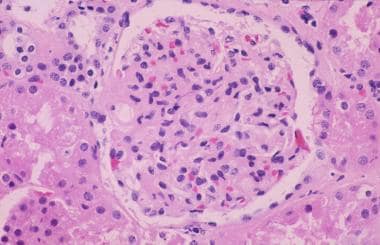New drug candidate shrinks kidney cysts in polycystic kidney disease (PKD)
In a recent study on animals and cells by Fedeles, 2024, a compound originally developed as a cancer treatment, was shown to hold promise for patients with autosomal dominant polycystic kidney disease (ADPKD).
The kidneys in PKD can become very big
Why is this important?
Autosomal dominant polycystic kidney disease (ADPKD) is an incurable genetic disease affecting over 12 million people worldwide. It leads to end-stage renal failure (ERSF) in ~50% of patients by the age of 60 years; which underscores the need for therapies that slow down disease progression.
In this study, the authors described a possible therapeutic strategy for ADPKD, demonstrated by studies in cellular and mouse models, in which cyst cells are selectively targeted.
What did the study show?
Recent insights into the pathophysiology of ADPKD revealed that cyst cells undergo metabolic changes that up-regulate aerobic glycolysis in lieu of mitochondrial respiration for energy production, a process that ostensibly fuels their increased proliferation.
The present work leverages this metabolic disruption as a way to selectively target cyst cells for apoptosis. This small-molecule therapeutic strategy utilises 11beta-dichloro, a repurposed DNA-damaging anti-tumour agent that induces apoptosis by exacerbating mitochondrial oxidative stress.
In the study, the authors demonstrated that 11beta-dichloro was effective in delaying cyst growth and preserving kidney function.
How does this affect you?
If you have ADPKD now, this new drug will not help you, as it has only be tried on cells and mice. But if these studies continue to show promise, this or a similar drug may help you in the future.
Other resource
What is polycystic kidney disease (PKD)?
Last Reviewed on 26 June 2024

